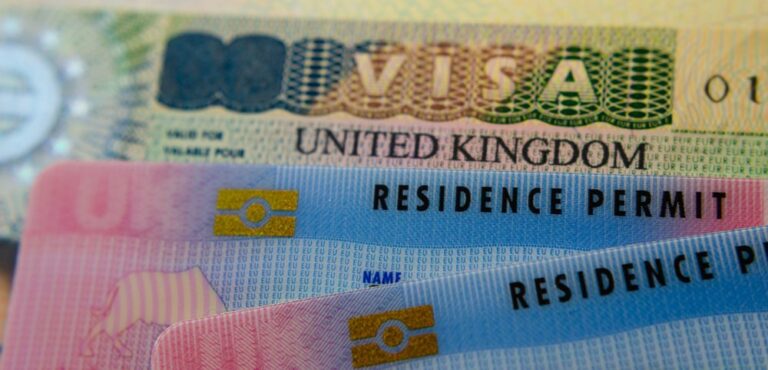Agency, Distribution, Franchise and Licence Agreements – what are they?

Do you want to start or expand your business and need advice on which approach is best?
Kuldeep Clair, the most experienced solicitor at Sterling Law, looks at the differences between various types of commercial agreements.
For many companies, considering whether to establish an agency, distribution or franchise relationship, the differences between these expansion models may not always be immediately clear.
Whereas an agent acts as a facilitator for contracts between the business and the customer, distributors buy from the business to sell to their own customers – while franchisees essentially run a near-identical copy of the franchisor’s business in a new location while paying for the right to use the branding and intellectual property.
When looking to expand, it can be difficult to know which approach is the best for your business. In this guide, we will look at what each type of relationship entails, and the legal considerations that come along with them.
What is an Agency Agreement?
An Agency Agreement allows a business (the principal) to gain access to new customers through the services of an agent.
For example, an agent might be sought for their specialist expertise with a certain market (perhaps allowing them to negotiate contracts in a different geographical location on behalf of the principal).
The standard contents of an Agency Agreement generally include:
- Detailed descriptions of the roles and responsibilities for both the agent and the principal
- The level of authorisation and autonomy granted to the agent
- How and when payments are made
- Rules for protecting sensitive information and/or trade secrets
- Whether the agent’s rights will be exclusive
- How the Agreement works with respect to termination or breaches
- Non-compete clauses (‘restrictive covenants’)
It is important to note that Agency relationships in the UK are subject to the Commercial Agents Regulations of 1993. This means that:
- Agents have a legal right to have their Agreement in writing
- The principal must pay the agent a reasonable commission if a fee or percentage was not agreed earlier
- There are important rules around when commission should be paid (and on which transactions)
- Minimum notice periods exist for termination of indefinite Agency Agreements
- Agents have a right to receive either compensation or an indemnity if terminated
Appointing an agent is often a very good and sensible move for a business looking to expand its boundaries without the expense of establishing an additional office and hiring staff in the new location. However, there is a downside in that the principal may end up accepting liability for something the agent does if they overstep their authority or make a mistake.
What is a Distribution Agreement?
In a distribution relationship, a distributor buys goods from the supplier and sells them on to their own customers (adding a margin to the sale price for profit).
The terms of this arrangement will usually be laid out in a Distribution Agreement. These Agreements can come in many forms, but will generally include:
- Territory – where the distributor can sell the products
- Provisions about how the distributor can promote products through different channels – including internet sales and promotion
- Minimum purchase obligations for the distributor
- Limits on the types of goods the distributor can sell
- Provisions preventing the distributor from selling competitor products
- Provisions protecting the supplier’s intellectual property such as trademarks
- Rules around the prices they will be charged and which they can charge their customers
- Clauses covering termination and limiting liability
On the face of it, these Agreements may seem somewhat similar to Agency Agreements. However, the distributor relationship is quite different – the distributor deals on their own behalf with the end customer, and no liability or responsibility for their transactions is passed onto the supplier, other than product liability for faulty goods.
There are several different types of Distribution Agreements:
- Exclusive rights: This means that the distributor will be the only entity permitted to sell the products in their region. The supplier is not allowed to take on other distributors or sell their own products in this location.
- Sole rights: The supplier can sell their own products in the territory, but is not able to appoint any other distributors.
- Non-exclusive rights: The distributor can be one of many selling the products in their location, and the supplier can appoint others (as well as seek their own sales).
- Selective distributorship: This means that the supplier can only appoint more distributors if certain criteria are met.
Unlike terminating an agency relationship, ending a distribution deal doesn’t legally incur any requirement to pay compensation or indemnity. However, the company will generally have less control over the activities of a distributor than it would an agent.
What is a Licence Agreement?
A Licence Agreement is a legal contract that sets out the terms of a deal between a licensor and a licensee granting the licensee the right to use certain knowledge and intellectual property rights of a licensor.
This allows the licensee to use intellectual property such as trademarks and know how developed by the Licensor in their business. It allows the Licensor to benefit from passing the knowledge they have developed on to a wider network of businesses. It may or may not include the right to sue certain trademarks and brand assets.
Some of the terms commonly found in Licence Agreements of this type are:
- Licence fees and royalties
- Provisions protecting use of trademarks and other intellectual property
- The duration of the agreement and provisions for termination
What is a Franchise Agreement?
A Franchise Agreement is a legal contract which is essentially a more comprehensive form of Licence Agreement that sets out the terms of a deal between a franchisor and a franchisee. Essentially, it grants a franchisee the right to run their own business using the concept and brand assets of a franchisor.
This allows the franchisee to enjoy the advantages of operating under an established brand name, while the franchisor is able to extend the reach of their business and reputation to a new location.
Some of the items commonly found in a Franchise Agreement often include:
- Franchise fees and royalties
- The franchisee’s responsibilities towards marketing the business
- How training will be organised
- The rules and expectations around ‘trade dress’ (such as use of logos, decor, staff uniforms, and so on).
- Procurement and supplies – such as whether the franchisee will be expected to buy only from the franchisor, or if they will have autonomy to make their own arrangements
- Staff and HR policies
- The duration of the agreement and provisions for termination
There is no specific legislation in the UK to cover franchising, so these agreements are generally governed by contract law, intellectual property legislation, and other areas.
Franchise agreements can be a good way to grow presence for the franchisor’s business in new locations and generate income. However, they may require considerable investment up front for expenses such as market research, financial projections, franchisee operating manuals, and also the cost of preparing the necessary infrastructure to get the franchise operations running effectively (such as establishing strategies for stock management, accounting, tax handling, and so on).
IN SUMMARY:
Many think that franchising and licensing are same, but the fact is that they are different, only the advantages of franchising are similar to those of licensing. The first and foremost difference between licensing and franchising are that the former is mainly associated with the production and marketing of goods while the latter is related to the service business.
While they might be quite different, Agency Agreements, Distribution Agreements, Licence Agreements and Franchise Agreements are all good possibilities when looking to expand your business to a new territory.
Each type of document has its nuances and considerations, but by enlisting expert legal help you can be sure you have the right contract for your needs.
Still quite confused? This is a complex topic. Please contact me for a free initial chat to discuss further on 07484 614090 or kuldeep@sterlinglawyers.co.uk
Kuldeep S. Clair, Solicitor of the Senior Courts of England and Wales








